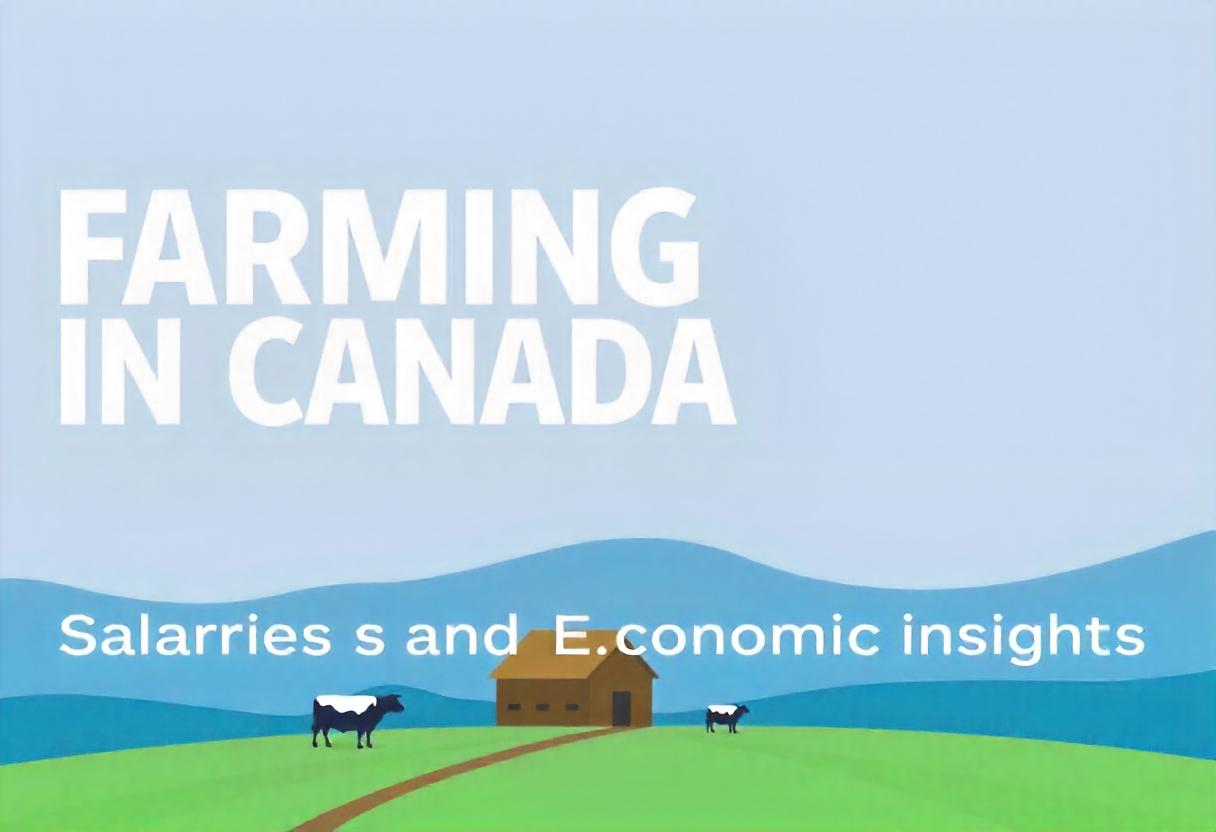
Farming is a cornerstone of Canada’s economy, contributing significantly to the country’s GDP and offering diverse career opportunities. The salary and economic conditions for farming professionals in Canada can vary widely based on factors such as the type of farming, geographic location, level of experience, and the scale of the farming operation. This article provides a comprehensive overview of farming salaries in Canada, including the factors that influence them and insights into the financial aspects of various agricultural roles.
Overview of Farming Salaries in Canada
Farming salaries in Canada reflect the diverse nature of the agricultural sector. While many farmers are self-employed, working on family farms or small operations, others are employed in larger commercial farming operations or agricultural businesses. Salaries can range from modest earnings for entry-level positions to higher incomes for experienced farmers and managers in large-scale operations.
1. Average Salaries for Farmers
According to Statistics Canada and various industry reports, the average salary for a full-time farmer in Canada varies based on the type of farming and location. As of recent data:
- General Farmers: The average annual salary for a general farmer in Canada is approximately CAD $50,000 to CAD $70,000. This range reflects the broad spectrum of farming activities, from crop and livestock production to specialty farming.
- Crop Farmers: Farmers specializing in crop production, such as grain and oilseed farmers, typically earn between CAD $55,000 and CAD $75,000 annually. The profitability of crop farming is closely tied to market prices for commodities and yield efficiency.
- Livestock Farmers: Livestock farmers, including those raising cattle, dairy, or poultry, generally earn between CAD $50,000 and CAD $80,000 annually. Salaries in this sector can be higher depending on the size of the operation and the type of livestock managed.
- Specialty Farmers: Those involved in niche markets such as organic farming, vineyards, or aquaculture may see a wider range of incomes. For instance, organic farmers might earn between CAD $60,000 and CAD $90,000, influenced by premium market prices for organic products.
2. Factors Affecting Farming Salaries
Several factors impact the salaries of individuals working in agriculture:
- Experience and Expertise: Experienced farmers and agricultural managers tend to earn higher salaries. Those with specialized knowledge or skills in areas like precision farming, agronomy, or livestock genetics may command premium wages.
- Type and Size of Farm: The scale of the farming operation significantly affects salaries. Large-scale commercial farms often offer higher wages and better benefits compared to smaller, family-run farms. Managers and specialized roles in large operations are typically compensated more.
- Geographic Location: Salaries can vary based on the region. In provinces with high agricultural output such as Alberta, Saskatchewan, and Manitoba, salaries may be higher due to demand for experienced labor and the scale of operations. Conversely, in areas with less intensive farming activities, salaries might be lower.
- Market Conditions: Commodity prices and market demand influence the profitability of farms and, consequently, the salaries of those working in agriculture. Fluctuations in market conditions can lead to variations in income levels.
- Government Support and Subsidies: Government policies, subsidies, and support programs can affect the financial health of farming operations, indirectly impacting salaries. Programs aimed at supporting farm income, innovation, and sustainability can enhance profitability and, in turn, salaries.
3. Additional Compensation and Benefits
In addition to base salaries, many farming roles offer additional compensation and benefits, including:
- Profit Sharing and Bonuses: Some larger farming operations and agricultural businesses provide profit-sharing schemes or performance bonuses based on the financial success of the farm.
- Housing and Utilities: In rural areas, employers may offer housing or subsidized utilities as part of the compensation package, particularly for roles that require living on-site.
- Health and Retirement Benefits: Larger employers or those in corporate farming operations may offer health insurance, retirement plans, and other benefits that enhance overall compensation.
4. Career Progression and Opportunities
The farming sector offers opportunities for career advancement and increased earnings. Roles such as farm managers, agricultural consultants, and agronomists typically command higher salaries due to their expertise and responsibilities. As technology advances and the industry evolves, new roles in precision agriculture, data analysis, and sustainable farming practices are emerging, offering additional career pathways and income potential.
Farming in Canada presents a range of salary opportunities depending on various factors such as farm type, location, experience, and market conditions. While the average salary for farmers can vary, the sector provides a solid foundation for careers in agriculture with opportunities for advancement and specialization. Understanding the factors that influence farming salaries can help individuals make informed career decisions and optimize their earning potential in this vital industry.